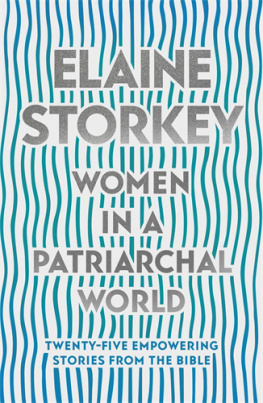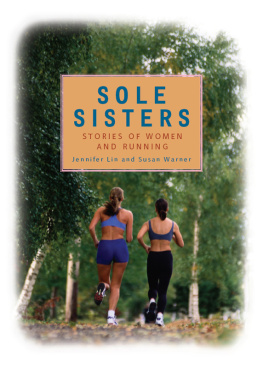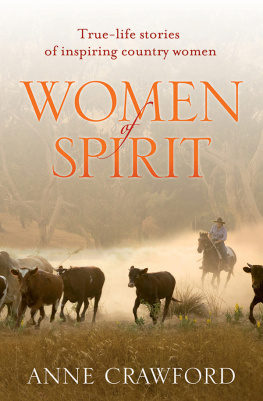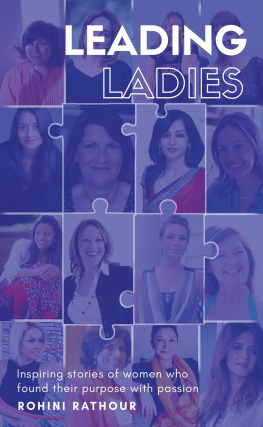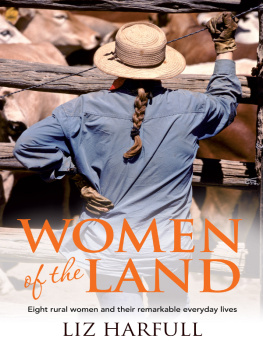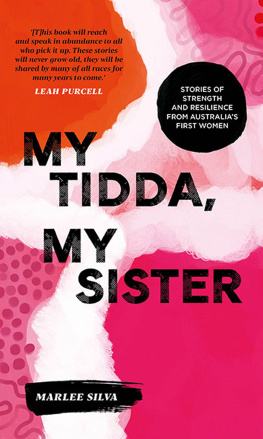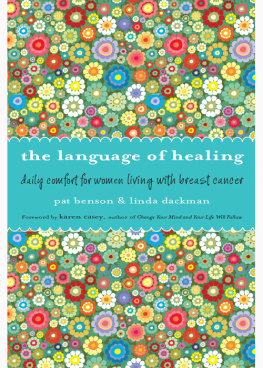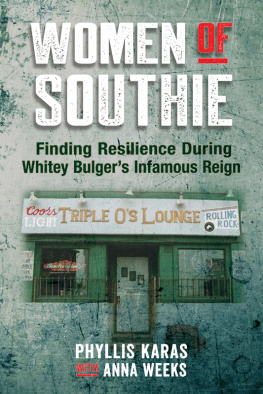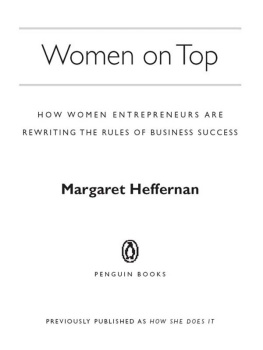Advance Praise for (Extra)Ordinary Women
(Extra)Ordinary Women: Ten Inspirational Stories is a journey into the very marrow of which strong women are made. Kristin Bartzokis fearlessly weaves a well-told tapestry of strength and perseverance proving our struggles do not define us, but rather propel us to become the best version of ourselves. This book is a must-read for women and men of all ages.
Joanie Cox-Henry, journalist and blogger
The women of Extraordinary Women not only share in experiencing the kinds of adversity most of us fear, they share an indomitable resilience of spirit. Their stories must be told, their ordeals understood, because the human collective can only benefit from their power.
Aimee Ross, author of Permanent Marker: A Memoir
Kristin Bartzokis, known for her trailblazing memoir Diary of a Beautiful Disaster , reminds readers that how a person responds to adversity is what makes her extraordinary. The ten women featured come from a variety of backgrounds, and the beauty of unity in diversity is exemplified in each story. In each womans story you are likely to find an aspect of her life to connect to your own.
Sarah McCune, former director of communications for FACES: The National Craniofacial Association
Copyright 2018 by KiCam Projects
All rights reserved. No part of this publication may be reproduced, stored in a retrieval system, or transmitted, in any form or by any means, electronic, mechanical, photocopying, recording, or otherwise, without the prior written permission of the publisher.
Cover and book design by Mark Sullivan
ISBN 978-0-9991581-4-2 (paperback)
ISBN 978-0-9991581-5-9 (e-book)
Library of Congress Control Number: 2018947931
Printed in the United States of America
Published by KiCam Projects
www.KiCamProjects.com
Mom, this incredible life wouldnt have been possible without your constant strength and unwavering love. ( hand squeeze, hand squeeze, hand squeeze )
Contents
Introduction ix
Olga
Lynn
Rasheera
Jaime
Camille
Odalys
Danielle
Margaret and Becky
Monique
Christina
References
Introduction
What makes someone an inspiration to others? That is a question I asked myself a lot while growing up. Because I was born with Treacher Collins syndrome, people often told me I was an inspiration, but I never felt like one. I was just an ordinary person who handled her life of reconstructive surgeries with as much strength and courage as she could. What other choice did I have? I was simply living my life the way anyone would.
As I matured, I realized I had the ability to compartmentalize my life and not let my syndrome take control. I chose to see it as a piece of me, rather than the very thing that defined me. I not only accept my differences; I embrace them.
Today, I walk through life with the understanding that what makes someone an inspiration is not that she has accomplished a monumental feat; it is how she chooses to live her everyday life and overcome adversity. Being an inspiration doesnt mean you have to do something drastic or huge; it means you have found a way to face your obstacles in a manner that others will strive to emulate.
Each of us looks for a hero, whether we realize it or not. We find particular traits that we admire in others and then adopt them as our own. Sometimes this happens automatically because its all we have ever been exposed to. I learned how to be strong from my mother. As she sat by my hospital bedside time and time again, I watched her stay composed in the most challenging situations. Witnessing her fortitude helped me find my own strength when I needed it most.
My story is not the only one with an influential mother. The mother-daughter relationship shines throughout the stories in this book. Many of these inspirational women are who they are today because of what they learned from their own mothers.
Each of the women in this book found a way to beat the odds stacked against her. Every one of these women proves that although we do not always have control of the situations in our lives, we can control how we react to those situations.
These women chose to learn from their most difficult moments. They chose to view their pain as an opportunity to make positive changes to their lives and become the best versions of themselves. They also chose to turn their pain into compassion, using their experiences to improve the lives of others.
In my opinion, thats what inspiration is all about: growing from your trials and choosing to make a difference.
This is a pivotal moment in history for womena time to rise, unite, and show the world what were made of. The women in this book remind us that even everyday acts of fearlessness and fortitude can leave a lasting impression for generations. I hope you find strength and empowerment in these chapters, just as I did.
Olga
Few Americans know that after World War II, Greece suffered through a terrible civil war, which brought more misery and bloodshed to a population that already had endured four years of hardship. In fact, post-World War II Greece was marked by a type of brutality that at times was comparable to, if not greater than, that of the sadistic Nazis. Olga Gatzoyiannis knew all of this far too well. The emotional scars she suffered as a result of the Greek Civil War never healed, and she continued to feel the effects of those scars throughout her life. (Olga passed away in January 2018, at age eighty-nine, while this book was being edited.)
In 1946, Communist insurgents in Greece rose up against the Western-aligned Greek government and sought to institute Communist rule throughout the country. Towns and villages in the northwest portion of Greece were particularly susceptible to the uprising, as they were bordered by two Communist countries, Albania and Yugoslavia. The tiny village of Lia, home to the Gatzoyiannis family, was situated in that area, only a few hundred yards from the Albanian border. In November 1947, Lia was overrun by Communist soldiers, effectively cutting off the village from the free world. Olga and her family became prisoners in their own village.
Before the war years, Olga had been very happy in her secluded mountainside home. She, her four younger siblings, and her mother lived in a small four-room house, where one room served as the bedroom for all. Olgas father lived in the United States, in Worcester, Massachusetts, where he worked various jobs, sending money back to his family whenever he could, hoping someday he could afford to bring them all to America to join him. But Olga knew any such move would be far off in the future, as her father was struggling to support even himself in the New World.
As a young girl, Olga passed her days working alongside her mother, Eleni, threshing wheat, tending the sheep and goats, cooking, cleaning, and keeping an eye on her siblings. As long as Olga had her mother nearby, she was happy. The two possessed a special bond, and Olga cherished that relationship.
During the early years of World War II, Lia was left pretty much untouched by the invading armies, its isolation being a deterrent to any military campaigns. But in early 1944, that all changed. The German army stormed into the village, seeking to flush out Greek partisan fighters. Olga trembled at the sight of the mighty army as it passed through her village, and she prayed the Germans would move on without incident. But when Greek resistance fighters hiding in the mountains took shots at the passing enemy troops, the German commander ordered an all-out retaliation. He instructed his soldiers to burn the village to the ground; no structure was to remain standing.


